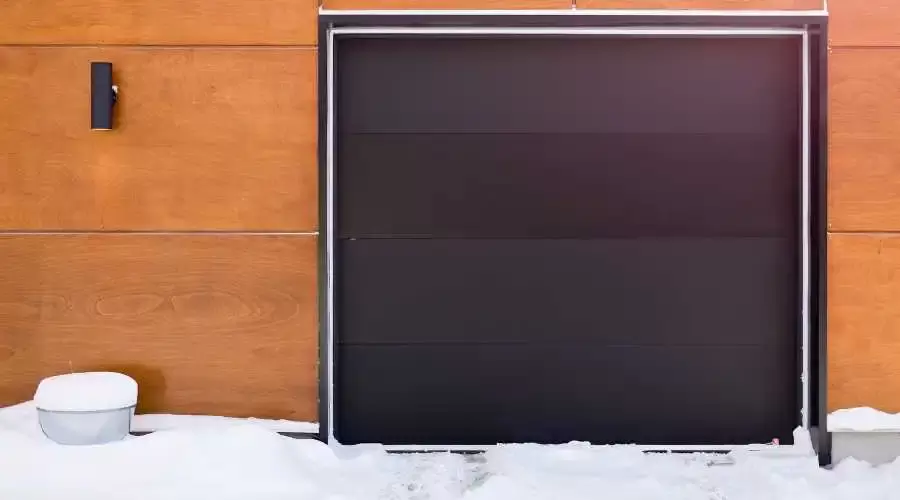As energy costs continue to fluctuate, home and business owners alike are increasingly seeking ways to improve the energy efficiency of their properties. One area often overlooked in this process is the garage door, which can be a significant source of energy loss. In regions and places with extreme weather conditions or drastic temperature changes, insulating the garage door can lead to substantial energy savings. In this blog, we will explore various garage door insulation options, discuss the benefits of insulated garage doors, and help you determine whether insulating your garage door is a worthy investment for your home or business.
Garage Door Insulation Options
When considering garage door insulation, it’s essential to explore various options to find the best fit for your specific needs. Below are some of the most popular garage door insulation options:
- Foam Board Insulation: this method utilizes thin and rigid panels with high-insulating value, and is ideal for garage doors that are rarely opened due to susceptibility to wear and tear.
- Spray Foam Insulation: A popular method that is sprayed onto the garage door, improving its R-value. However, it may not be the most effective option for all garage doors.
- Cellulose Insulation: Similar to spray foam but with better results for garage doors. However, it comes with a higher price tag.
- Reflective Insulation: Utilizes thin and rigid boards with a reflective foil to deter heat, making it suitable for hot climates.
- Fiberglass Insulation: One of the most affordable options, this method is applied to the inside face of the door to increase its R-value.
Insulated Garage Doors
Apart from traditional insulation methods, property owners may consider replacing their garage door with an insulated one. Insulated garage doors, such as those made from fiberglass with a foam core, significantly reduce energy loss and improve energy efficiency, which could significantly cut utility costs in the long run. And, unbeknownst to many, insulated garage doors could also add an additional line of defense and security, since these type of garage doors makes forced entry a challenging task, which could deter burglars and prevent potential garage break-ins.
Determining If Insulation is Worth It
The decision to insulate your garage door depends on various factors. Before anything, you might want to consider and ask yourself the following questions:
- Is your garage attached to your home? A poorly insulated door can allow hot or cold air to enter your home if the garage shares a wall with a living space.
- Do you live in an area with extreme weather conditions? Drastic temperature changes can affect your property’s utility bills.
- Do you keep pets in the garage or use it as a workspace? Insulation can help maintain a comfortable temperature and atmosphere in the garage space.
- Are you planning to sell your home? Better insulation options can increase your home’s value and appeal to potential buyers.
If You Answered “Yes”
If you answered “yes” to at least two of the questions above, insulating your garage door is worth considering. An insulated door will prevent energy loss, maintain comfortable temperatures in your garage workspace, and potentially increase your home’s resale value.
If You Answered “No”
If you answered “no” to at least three of the questions, insulating your garage door may not be necessary. Instead, focus on insulating other parts of the garage, such as walls, ceiling, and windows, to eliminate air gaps and improve energy efficiency.
Insulating your garage door is a crucial step towards enhancing energy efficiency and reducing utility costs. Insulated garage doors, particularly those made from fiberglass with a foam core, offer significant benefits by reducing energy loss and improving overall energy efficiency, resulting in potential long-term savings. The decision to insulate depends on different factors, such as the garage’s proximity to living spaces, local climate conditions, garage usage, and future plans for selling the property.
If the answers indicate potential benefits, such as maintaining a comfortable temperature for pets or workspace, improving home value, or lowering energy consumption, insulating your garage door would be a wise investment. However, for those with other energy efficiency priorities or lower usage of the garage space, focusing on insulating other areas of the garage may suffice. Ultimately, carefully assessing specific needs will lead to the best insulation approach for optimal energy savings and comfort.
Contact us at Fort Lee Garage Doors for expert advice on selecting the perfect garage door for your home. Our team will help you find a style you’ll love while ensuring enhanced energy efficiency. For more information or to request a free estimate, get in touch with our garage door experts today!

